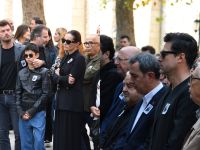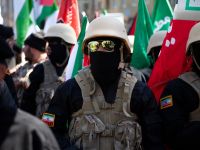The time of year is fast approaching to give Shari'ah- compliant banks a golden opportunity to demonstrate Islamic values, and consumers the best chance of getting a good deal on a car. During the Holy Month of Ramadan, Islamic banks traditionally re-focus on their Corporate Social Responsibility (CSR) programmes and get into the spirit of Ramadan by presenting their customers with freebies, loan deferments and a range of special offers. Marketing campaigns aimed at the world's 1.6 billion Muslims worldwide increased in 2010 as the global economy began to recover, according to the Pan Arab Research Center in Dubai. It said spending on advertising by financial services companies in the Arab region was expected to grow by 40 per cent in 2010 compared with 2009.
THE PERFECT PLATFORM
M Shaharyar Umar, an Analyst at Pan Arab Research, said that as cautious optimism returned, the banking sector was using the Holy Month as the perfect platform to promote Islamic banking. Emirates NBD of Dubai waived payments on personal loans during Ramadan last year, while Maybank Islamic in Kuala Lumpur started automating charitable donations. Qatar Islamic Bank (QIB) provided QAR 1,120,000 ($307,565) in food, monetary, and Iftar aid during the Holy Month of Ramadan 2010.
Banks in Indonesia, the world's most populous Muslim nation, also offered limited-edition products to generate Ramadan-linked revenue and publicity. Bank Syariah Mandiri, the Islamic unit of Indonesia's largest bank by assets, collaborated with a local TV operator on a programme aimed at promoting Shari'ah-compliant banking during the Holy Month.
"It is an educational programme that aims to promote Shari'ah banking products such as micro-credit loans," said Ivan Baruna, the head of the bank's product division. He explained that customers who received funding and successfully expanded their businesses were invited to talk about their experience on the show.
SCREEN SUCCESS
Syariah Mandiri wasn't the only bank that enjoyed screen success. Dubai Islamic Bank (DIB)'s Ramadan commercial was named one of 2010's top 10 television advertisements. Aptly named ‘Give', the commercial emphasised the importance of giving during the Holy Month of Ramadan.
The television advertisement told the tale of an anonymous benefactor who travels through Dubai's dusty roads in the immense heat to leave mysterious packages for the needy. Salah Al Hashimi, Head of Corporate Communications for Dubai Islamic Bank, said, "We are proud that our commercial was selected as one of the top 10 ads in 2010 in the region. A lot of work and effort was put into it to ensure it reaches its objective and delivers its message, and it did.
"I thank all those behind the ‘Give' campaign for creating a commercial that encapsulated the spirit of Ramadan perfectly. By avoiding conventional commercial advertisement in favour of delivering a social message we were able to create a far greater impression on viewers."
The message behind ‘Give' is that the really good deeds are normally the anonymous ones, however the Islamic banks behind the marketing campaigns certainly don't wish to remain nameless. "The banking sector is engaged in brand- image building exercises and Ramadan offers the much needed platform for these promotions," said Umar.
BRAND BUILDING
As well as the usual goodwill gestures such as postponing personal loan instalments, banks seemed keen to demonstrate core Islamic values over Ramadan last year. For example, Al Hilal Bank, with help from the Brand Union, marked the occasion by creating gift boxes for its customers and employees containing Qurans, Imsakiyas with all the prayer times clearly marked and specially created colouring cards for children.
"The ‘Embrace Ramadan' initiative shied away from the big expensive communication campaign, choosing instead a more low key approach to put across our message and help our customers and employees live and commit to the whole experience of Ramadan," said Anas Al Naji, Al Hilal Bank's Marketing Manager.
The Brand Union also created a bag and envelope in which to donate any unwanted clothes and money to the poor and needy. "As always with Al Hilal Bank, we wanted to create something never tried before in banking. For us it was a great opportunity to get back to basics and reconnect with what Ramadan stands for," said Joe Moufarrej, the Brand Union's Client Director.
According to Amman Muhammad, the Managing Director of Absa Bank in South Africa, special times of the year such as Ramadan and Eid give banks the perfect chance to go back to basics. He recalled one such campaign, saying, "The most ambitious and memorable of these was a Hajj pack for our customers who were going on Hajj in the year that we launched. This was a sturdy backpack that included a branded water bottle, prayer mat and shoe bag."
STOCKS RISE
It seems that Islamic banks' efforts to entice customers may well pay off, as consumers appear to be more inclined to Islamic finance during Ramadan. The holiest month of the Islamic calendar, marked with fasting, prayer and special offers, is also an uplifting time for stock markets in predominantly Muslim countries, according to a study by the University of New Hampshire.
The study found that stock markets in Oman, Turkey, Kuwait, United Arab Emirates, Qatar, Pakistan, Jordan, Egypt, Morocco, Tunisia, Malaysia, Bahrain, Indonesia and Saudi Arabia generated average returns of 38 per cent during the month of Ramadan over the years 1989 through 2007, compared with their average 4.3 per cent returns the rest of the year.
Ahmad Etebari, a Professor of finance at the university in Durham, New Hampshire, who was lead researcher on the study, said he was surprised by the finding. "Fasting is quite an ordeal during those long summer days in the Middle East," said Etebari, who was born in Iran. "I expected to see the opposite."
Since Ramadan is determined by a lunar calendar, its starting date varies from year to year. Etebari found that the markets he analysed performed strongly, regardless of the timing of Ramadan. Etebari concluded that the rally resulted from greater optimism during Ramadan. "This is behavioural," Etebari said. "It stems from psychology."
In the Middle East, Dubai's main index and Abu Dhabi's benchmark are both down so far this year, while stocks in Indonesia, an officially secular country that has the world's largest Muslim population, are up about 20 per cent.
"The implication of our find for investors is obvious," Etebari said. "Investors seeking fast profits in the Muslim world should try to profit from the fast."
It seems that Islamic banks have the same idea.







